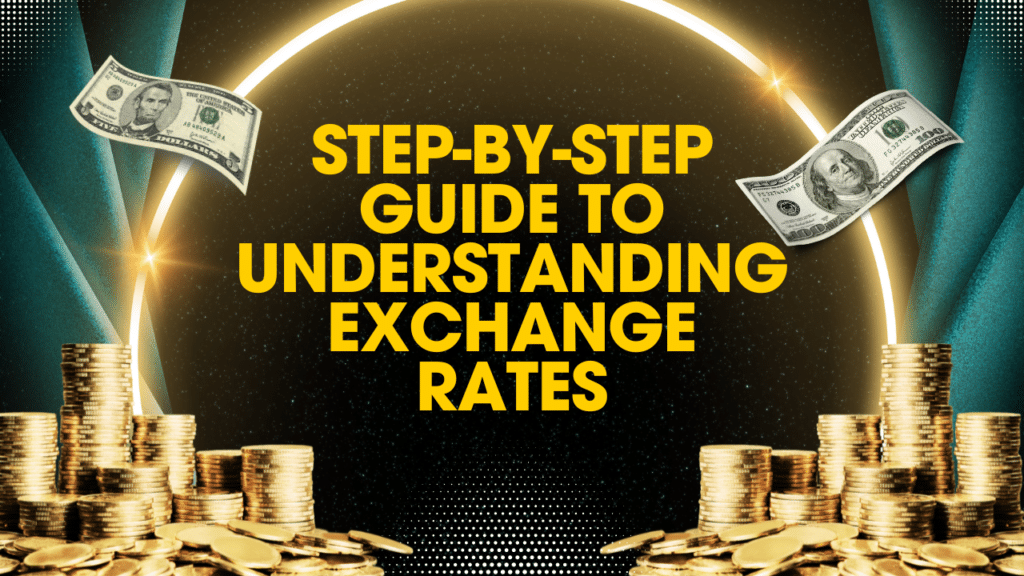Step-by-Step Guide to Understanding Exchange Rates
Introduction
Currency converters have become indispensable tools for travelers, businesses, and individuals dealing with multiple currencies. Whether you’re planning a trip abroad, making international purchases, or just curious about exchange rates, understanding how to use a currency converter effectively can save you time and money. This guide provides a step-by-step explanation of how to make the most out of currency converters and insights into exchange rates.
What is a Currency Converter?
A currency converter is a tool that calculates the equivalent value of one currency in another based on the current exchange rate. These tools are available online, as mobile apps, and even embedded in financial platforms.
How Do Exchange Rates Work?
Exchange rates determine how much one currency is worth compared to another.
- Fixed Exchange Rate: Controlled by governments, pegged to a stable currency like USD.
- Floating Exchange Rate: Determined by supply and demand in the foreign exchange market.
Factors Influencing Exchange Rates:
- Economic Indicators: Inflation, interest rates, and GDP growth.
- Political Stability: Countries with stable governance attract stronger currency values.
- Market Demand: Increased demand for a currency strengthens its value.
Step-by-Step Guide to Using a Currency Converter
1. Choose a Reliable Currency Converter
- Use trusted tools like Google Currency Converter, XE, or your bank’s official app.
- Ensure the tool uses real-time exchange rates for accuracy.
2. Select Your Currencies
- Input the base currency (e.g., PKR) and the target currency (e.g., USD, EUR, or AED).
- Double-check you’ve selected the correct currencies to avoid errors.
3. Input the Amount
- Enter the amount you wish to convert.
- For example, converting 10,000 PKR to USD.
4. Review the Exchange Rate
- Note the exchange rate displayed by the tool.
- Some converters also provide historical rates to track trends over time.
5. Account for Conversion Fees
- Check if the service includes hidden fees or commissions in the displayed rate.
- Online tools may not show bank or card fees that apply during actual transactions.
6. Save or Print Results
- For travelers or business transactions, save the conversion details for reference.
Benefits of Using a Currency Converter
- Convenience:
- Instant access to exchange rates without manual calculations.
- Accuracy:
- Real-time updates reflect market conditions for precise conversions.
- Budget Planning:
- Helps travelers estimate expenses and prepare for international trips.
- Business Insights:
- Enables businesses to price goods, pay vendors, or evaluate international investments.
Tips for Using Currency Converters Effectively
1. Stay Updated on Exchange Rates
- Rates fluctuate frequently; check them before making significant transactions.
2. Compare Rates
- Compare rates from multiple sources like banks, online converters, and forex services.
3. Beware of Dynamic Currency Conversion (DCC):
- Some merchants offer to charge in your home currency during international transactions.
- Always choose to pay in the local currency for better exchange rates.
4. Use Apps for Quick Access
- Download currency converter apps for on-the-go calculations.
5. Understand Mid-Market Rates vs. Transaction Rates
- Online tools often display mid-market rates, which may differ from rates offered by banks or money exchangers.
Common Mistakes to Avoid
- Ignoring Fees:
- Always account for additional charges applied during actual currency exchanges.
- Using Outdated Rates:
- Exchange rates change frequently, so always use tools with real-time updates.
- Relying Solely on Converters:
- Do basic research about the target currency to understand trends and fluctuations.
Examples of Currency Converter Usage
- For Travelers:
- Calculate the value of foreign currencies to budget for trips abroad.
- For E-Commerce Buyers:
- Check how much an international purchase will cost in your home currency.
- For Investors:
- Evaluate the value of foreign assets or stocks based on real-time exchange rates.
Conclusion
Using a currency converter effectively can simplify complex calculations and enhance your financial decisions. Whether for travel, business, or personal use, mastering the basics of exchange rates and understanding how to account for fees can help you save money and avoid surprises. By following this guide, you’ll be well-equipped to navigate the global financial landscape with confidence.







